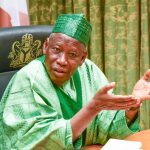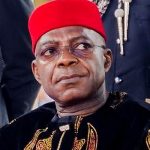Exactly 25 years ago, Nigeria went to the polls in the Third Republic of its democratic dispensation to elect a president.
The date was precisely June 12, 1993, and the then two major political parties were the Social Democratic Party (SDP) and the National Republican Convention (NRC).
The political gladiators for each party were African business icon, Chief Moshood. K.O Abiola (SDP) and Alhaji Bashir .O. Tofa (NRC).
Unfortunately, the election was annulled when results already indicated a massive victory for Chief Abiola in what many political observers had termed a free and fair election.
In this article, WUZUPNIGERIA highlights 13 facts to know about June 12.
1. June 12 was formerly known as Abiola Day, celebrated in Lagos and some South-Western states of Nigeria. This was done to commemorate the election of MKO Abiola on June 12, 1993.
2. The election has been adjudged to be Nigeria’s freest and fairest election by local and international standards.
3. According to a political-economic school of thought, June 12 is the real “Democracy day”, when Nigerians came out en-masse to vote for a democratic government, free from the shackles of military regime.
4. It was the annulment of the election by the then Head of State General Ibrahim Babangida that gave birth to a progressive and consistent agitation for a democratic government that finally materialised on May 29, 1999.
5. Like the late Dr Nelson Mandela, the late Chief Moshood Abiola stood for his mandate as the winner of the June 12, 1993 election.
6. Abiola paid with his life and did not accept any other offer aside from the one he was given by the electorate.
7. It is a day to reflect on the role of Civil Societies Groups and Organizations like the Civil Liberties Organization (CLO) and the National Democratic Coalition (NADECO), and how they contributed immensely to the consistent agitation for democratic governance post-June 12.
8. Some leaders who played significant roles in the June 12 struggle included; the late Chief Gani Fawehinmi, the late Dr Beko Ransome Kuti, Dr Ayo Opadokun, Dr Olisa Agbakoba, Mrs Ayo Obe, amongst others.
9. Trade Unions were also vital in the quest for the mandate of the late Chief Abiola and the actualisation of democracy in Nigeria. Post June 12, 1993. Groups like the Academic Staff Union of Universities (ASUU) led by Dr Asisi Asobie, and the Nigerian Union of Petroleum and Natural Gas (NUPENG) workers with the efficient Secretary-General then Mr Frank Kokori, carried out industrial actions persistently calling for democratic governance in the country. Other groups include the Nigerian Bar Association (NBA), the Nigerian Union of Journalists (NUJ), the Nigerian Labour Congress and the Petroleum and Natural Gas Senior Staff Association of Nigeria (PENGASSAN).
10. 2021 is the fourth year that the country will be marking Democracy Day in the month of June. President Buhari-led Federal Government of Nigeria declared June 12 to be the new Democracy Day, giving an inaugural address for his second term on June 12, 2019.
11. Amongst those who died in the course of the agitation of the June 12, 1993 mandate are Chief Moshood Abiola, his wife Mrs Ku1irat Abiola and Chief Alfred Rewane. The efforts of the late Chief Adekunle Ajasin, the late Chief Abraham Adesanya, Alhaji Balarabe Musa, Chief Olu Falae, Senator Bola Ahmed Tinubu, Chief Dele Momodu, Prof Wole Soyinka, Dr Frederick Fasehun, Col. Tanko Umar (Rtd), Dr Clement Nwankwo, Mr Chima Ubani, Lt. Gen Alani Akinrinade (Rtd), Dr John Fayemi, amongst others were invaluable. They were valiant, determined and resolute that democracy will be practised in Nigeria.
12. What Nigeria is witnessing today as “Democratic Rule” would not have been possible if the June 12, 1993 annulment did not elicit resistance, consistent agitations and resolute demonstrations against the military regimes of Gen. Ibrahim Babangida (Rtd) and the late Gen Sanni Abacha.











